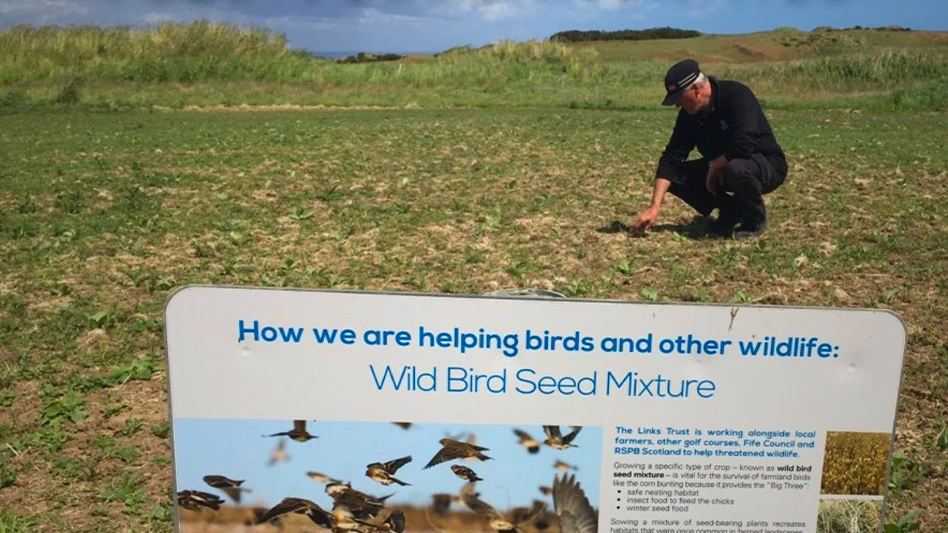A difficult year
2004 was tough for a couple of superintendents and their clubs. The economy, new supply and natural disasters made things difficult.
During 2004, rounds at Fiddlesticks Country Club in Fort Myers, Fla., increased from 2003 despite being damaged and threatened by several hurricanes, according to Tim Perez, director of golf courses and grounds.
“We were all worried about rounds, but it’s not as bad in Florida as it could have been,” he says. “It’s been consistent from season to season here.”
Perez says 2004 started out great until the hurricanes came: 525 trees were destroyed on the course, and a total of 1,110 were lost including the surrounding areas; cleanup took four weeks; the main course was closed for about three months; and the club spent more than $100,000 on the cleanup.
“Even still, the club met its budget,” Perez says.
Financially, the private equity club is debt free, which is one of the things Perez likes about working at Fiddlesticks, which has 600 members and two 18-hole courses. Perez, who’s been there for two years, says the general manager came to the club four or five years before him and aligned it with solid business ethics.
2004 was a year the club turned a corner, according to Perez.
“We’re working hard to get out of being an antiquated club,” he says. “We scored a major milestone to rebuild the main golf course. My staff will get to perform like the other high-end clubs in the area.”
Perez also says the club was threatened by a nearby wildfire, which was dangerous because of all the chemicals stored in the maintenance facility.
“2004 was the craziest year I have had in the 27 years I’ve been in the business,” he says. “And I’ve worked for the PGA for eight years, and that was busy. This year was unusual and highly involved. We had five times the amount of work we usually have.”
Across the country in California, Rich Eichner, superintendent at the 18-hole Discovery Bay Golf and Country Club in Bryon, was affected by a different set of challenges.
“We are a bedroom community for Silicon Valley, and members are from the defense industry or associated with the computer industry,” he says. “As a result of the dot.com industry, membership was impacted. We lost a lot of members. In 2003, through the first eight months of 2004, we were in a down cycle. We’re starting to improve. We lost members because the economy and relocation.
“In 1985, we were the only game in town, now there are four other courses that have impacted us,” he adds. “We’re getting members back because we’re private. We’ve added another 30 members. That added money goes right to the bottom line. We have remained profitable but minimally so, compared to 2002.”
Because the course is open year round some workers had to reduce the number of hours they worked to keep their jobs.
“We’re staffed the same year round,” he says. “In food service and the golf operations, we reduced the staff and cut hours. Some people who worked 40 hours were down to 30, and that forced some of them to leave. But the operating cost of the golf course didn’t change. We didn’t let any staff go.”
Eichner’s $1 million budget maintenance was reduced $80,000 and he says he came in slightly under budget. GCN

Explore the February 2005 Issue
Check out more from this issue and find your next story to read.
Latest from Golf Course Industry
- Making the grade — at or near grade
- PBI-Gordon receives local business honor
- Florida's Windsor takes environmental step
- GCSAA names Grassroots Ambassador Leadership Award winners
- Turf & Soil Diagnostics promotes Duane Otto to president
- Reel Turf Techs: Ben Herberger
- Brian Costello elected ASGCA president
- The Aquatrols Company story





